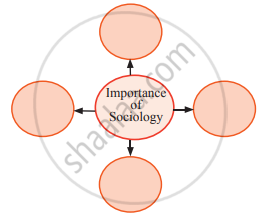Topics
Introduction of Sociology
Contribution of Western and Indian Sociologists
- Introduction to Western Sociologists
- Auguste Comte (1798-1857)
- Emile Durkheim (1858-1917)
- Karl Marx (1818-1883)
- Abdul Rahman Ibn-khaldun
- Harriet Martineau (1802 – 1876)
- Durkheims’ Theory of Suicide
- William Du Bois (1868 – 1963)
- Marxian Theory of ‘Class Conflict’
- Introduction to Indian Sociologists
- Dr. G. S. Ghurye (1893-1983)
- Dr. M. N. Srinivas (1916-1999)
- Dr. Iravati Karve (1905-1970)
Basic Concepts in Sociology
- Introduction of Society
- Definition of Society
- Characteristics of Society
- Introduction of Community
- Definition of Community
- Elements of Community
- Introduction of Social Group
- Definition of Social Group
- Characteristics of Social Group
- Types of Social Group
- Concept of Social Status
- Types of Social Status
- Concept of Social Role
- Social Role Related Concept
- Concept of Social Norms
- Types of Social Norms
Social Institutions
- Concept of Social Institutions
- Characteristics of Social Institutions
- Concept of Family
- Functions of Family
- Forms of Family
- Twenty-first Century Families
- Concept of Marriage
- Forms of Marriage
- Family, Marriage and Kinship
- Economy and Work
- Concept of Education
- Types of Education
- Importance of Education
- Education and Social Division
Culture
Socialization
Social Stratification
Social Change
Notes
Importance of Sociology
1. Sociology studies society in a scientific manner: Sociology has made it possible to study society in a scientific manner. Scientific knowledge about a complex human society is needed in order to achieve progress in various fields. The science of society assists us to understand our self, our capacities, and our talents. It enables us to adjust our selves to the changing environment. It guides us in understanding social life.
2. Sociology gives knowledge about social diversities: Sociology provides us with knowledge of different types of societies, groups, communities, their way of life, cultural differences, religious and regional differences, plural nature of society.
3. Sociology develops a scientific approach: With the help of Sociology, we can develop our scientific approach to know the social reality. It makes us more objective, rational, critical, prejudice-free, and positive in our thinking.
4. Sociology is career-oriented: The utility of Sociology is increasing day by day. It is essential at present, to have sociological knowledge to study our dynamic society. Occupational nature is also changing in a changing society. The knowledge of Sociology can perfectly be matched with a changing society, changing needs, and changing the nature of occupations. From this perspective, the importance of Sociology increases. Sociology is not confined to the classroom. Its application is increasing in the field of industry, social services, social work, law, competitive examinations, marketing, public relations, journalism, broadcasting, skill development, communication fields, NGOs, labour welfare, social security, insurance sector, rehabilitation, social welfare, rural development, tourism, family welfare, census operations, policy and planning, public health, social research, counselling, police department, tribal welfare, inclusive education, correctional administration, consumer research and so on.
5. A solution to social problems: The present society is facing several social problems like poverty, unemployment, terrorism, overpopulation, migration social unrest, addiction, social disorganisation, racial and caste conflicts, communal riots, delinquency, etc. To solve all these problems, balanced knowledge is needed. Such an analysis can be made using a sociological outlook.
6. Sociology keeps people updated and alert: Sociology has a practical value. It keeps people updated and alert about social situations, social phenomena, changing society and it invites our attention for an effective response to such conditions. In this chapter, you have become familiar with the meaning of Sociology, the nature, and the usefulness of studying Sociology. We hope you are now excited to learn about the thinkers who have contributed to the development of Sociology.

